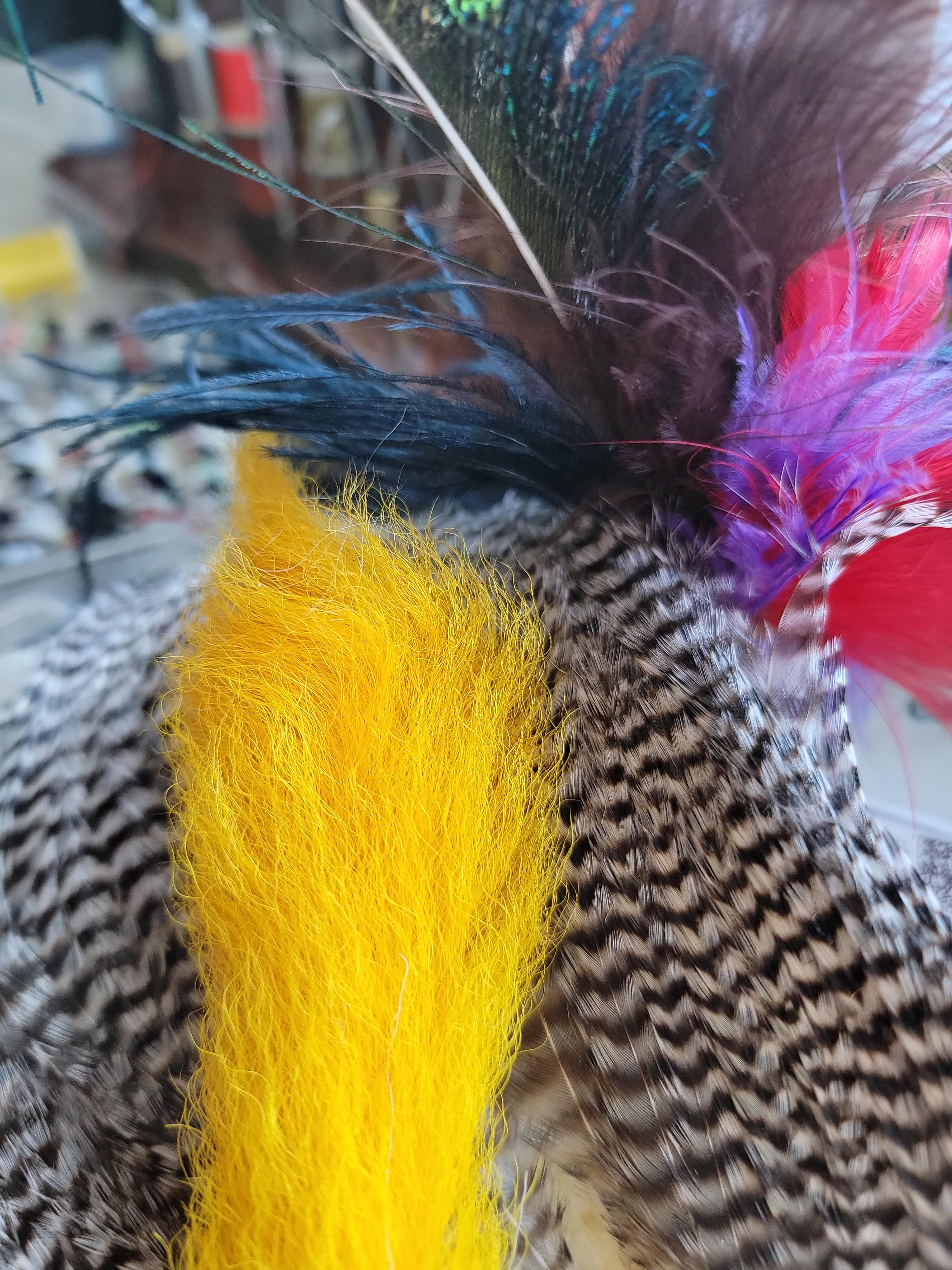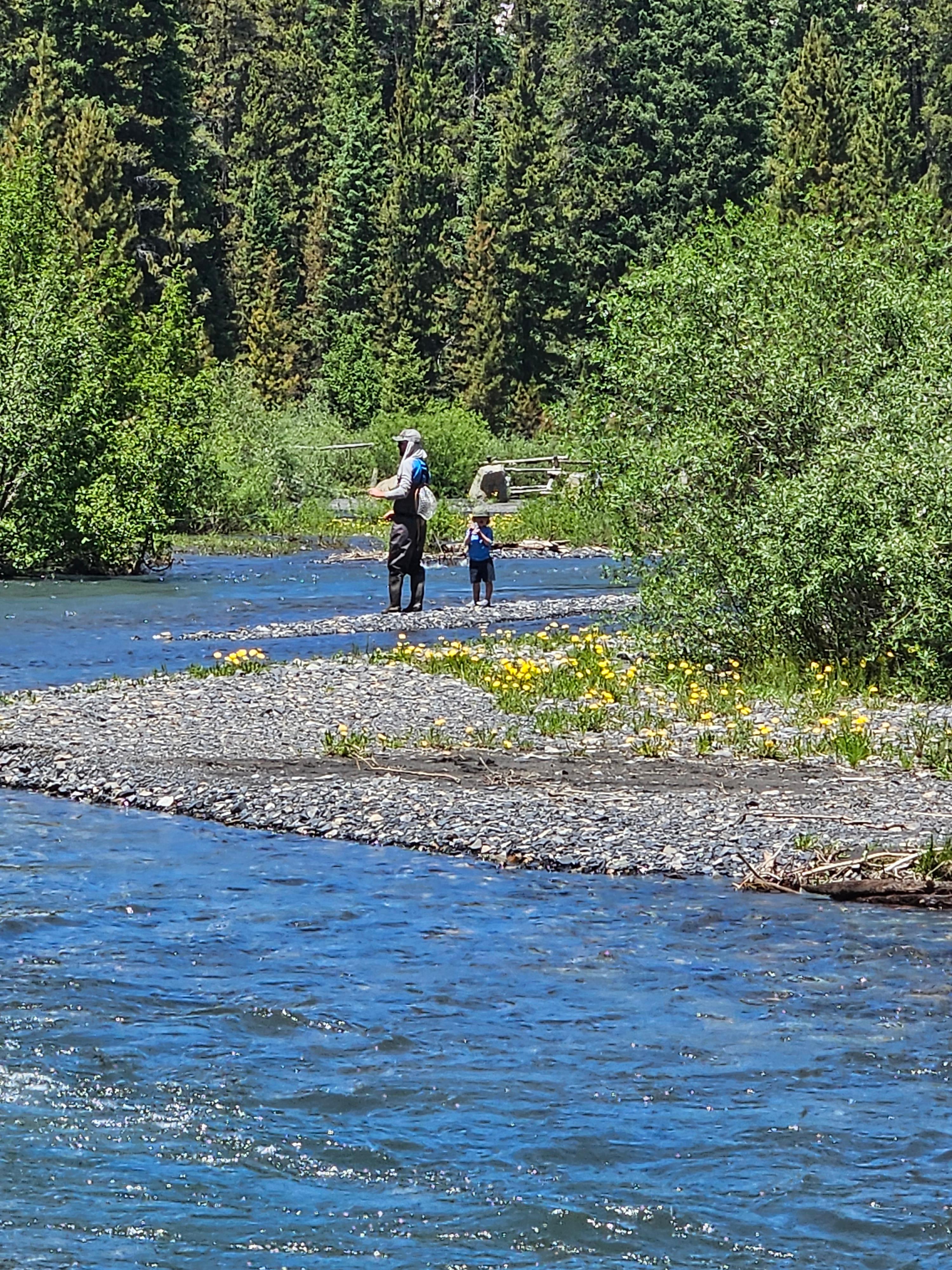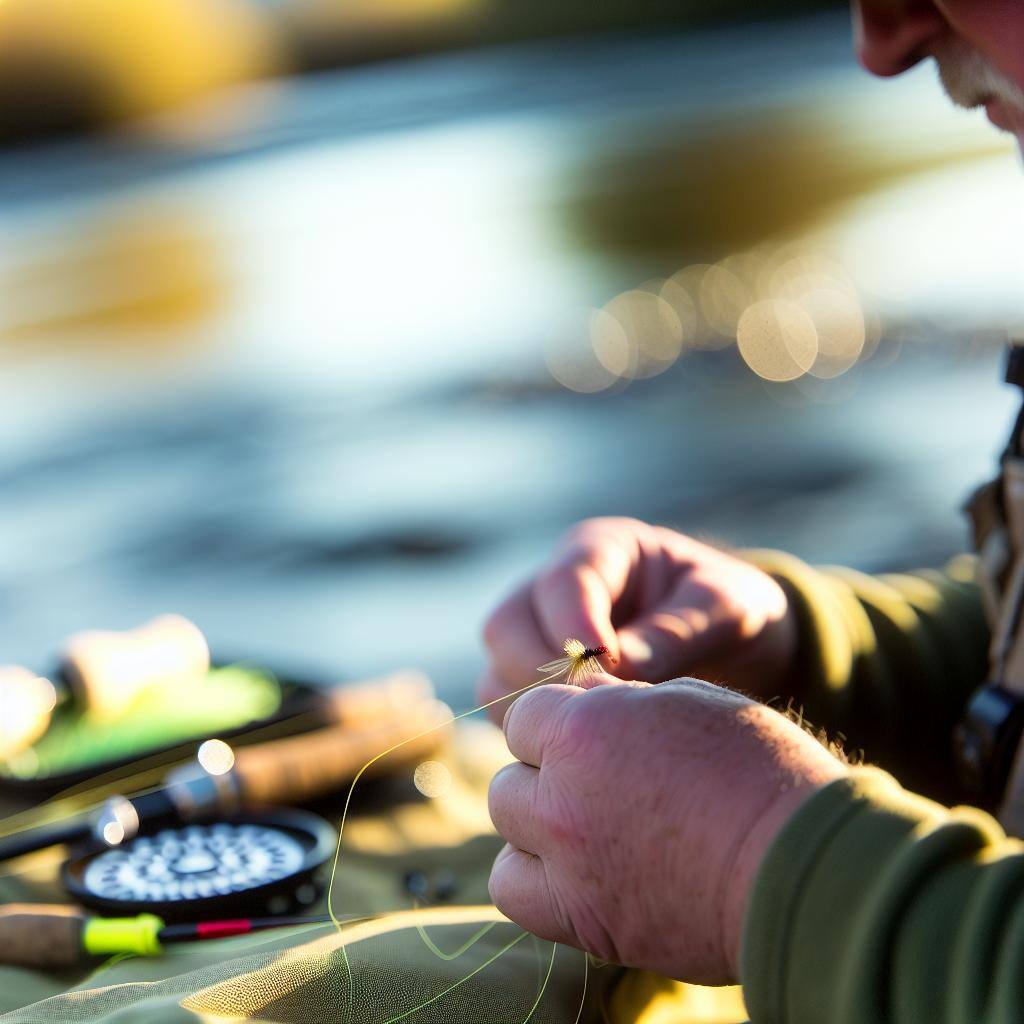Enhance your fly fishing abilities by steering clear of these typical errors that beginners often make, and watch your skills soar to new heights.
9 NOT PRACTICING KNOTS
Practicing knot tying is essential for fly fishermen as it guarantees the proper attachment of the fly to the leader. A poorly tied knot can cause the fly to come loose or change the way it moves in the water, leading to reduced chances of catching fish. Knots are the weakest part of the fishing line, and they can break if not tied correctly, causing you to lose the fish. Therefore, it is crucial to practice knot tying until you can tie them quickly and confidently, ensuring that you can attach your fly securely and fish with confidence.
-1.png?width=1920&height=1080&name=Untitled%20design%20(39)-1.png)
8 TRYING TO CAST TOO MUCH FLY LINE
When you try to cast too much fly line as a beginner fly fisherman, it can lead to a range of issues that can negatively impact your fishing experience. Firstly, it can be challenging to control the line, resulting in poor accuracy and difficulty in placing the fly where you want it to go. Secondly, it can cause your arm to become fatigued, leading to a decrease in your casting ability, and ultimately reducing your chances of catching fish. It is best to cast the right amount of line that you can control comfortably, and then gradually work on increasing the amount as you become more experienced.
.png?width=1920&height=1080&name=Untitled%20design%20(45).png)
7 MOVING TOO FAST OR TOO SLOW
Moving slow in fly fishing is often recommended because it can increase your chances of catching fish. Fish are often spooked by sudden movements or disturbances in the water, so moving slowly and quietly can help you avoid scaring them away. Additionally, fly fishing requires a lot of patience and careful observation, so moving slowly can help you better observe the water and the fish, and adjust your techniques accordingly. Moving slowly can also help you better appreciate the natural beauty of the surroundings and the tranquility of the water, making the experience more enjoyable overall. Of course, there are times when a faster approach may be necessary, depending on the conditions and the type of fish you are targeting. Ultimately, the key is to stay attuned to the water, the fish, and the overall environment, and adjust your approach as needed to maximize your chances of success.
.png?width=600&height=400&name=fly%20fishing%20in%20colorado%20(11).png)
6 GETTING TOO 'WRISTY' WITH THE CAST
"Getting too wristy with your cast" means relying too heavily on your wrist to make the cast instead of using your entire arm to generate power and accuracy. This can result in an inefficient and ineffective cast, as well as potentially causing fatigue or injury to your wrist. To avoid being too wristy, focus on using your entire arm to make smooth, controlled movements and practice proper casting techniques.

5 TYING FLIES DIRECTLY TO THE LEADER
Tying flies directly to the leader in fly fishing can have some disadvantages. First, it can cause your leader to wear out more quickly, making it necessary to replace it more often. Additionally, tying the fly directly to the leader can result in a less natural presentation of the fly, which can make it less appealing to fish. Finally, tying the fly directly to the leader can limit the versatility of your rig, making it less adaptable to different fishing conditions. In most cases, it's best to use a tippet between the leader and the fly to help extend the life of your leader and provide a more natural presentation of the fly.
.png?width=1920&height=1080&name=Untitled%20design%20(44).png)
4 TOO MUCH FALSE CASTING
While false casting is a useful technique in fly fishing, it can be detrimental when overdone. Too much false casting can scare fish away and tire you out quickly, affecting your accuracy and overall performance. It's important to minimize false casting and focus on making accurate, efficient casts to conserve your energy and avoid spooking fish.
.png?width=600&height=400&name=fly%20fishing%20in%20colorado%20(2).png)
3 NOT SETTING THE HOOK ENOUGH
Setting the hook properly is crucial in fly fishing to ensure that the fish stays on the line. The key is to wait until you feel the weight of the fish on the line before setting the hook. When you feel a tug or a pull, resist the urge to immediately jerk the rod upward. Instead, quickly and firmly raise the rod while simultaneously reeling in any slack in the line. This motion should be swift and deliberate, but not overly aggressive, as setting the hook too hard can cause the fish to break off the line. With a little bit of practice, you'll find the sweet spot for setting the hook and start landing more fish.
.png?width=600&height=400&name=fly%20fishing%20in%20colorado%20(10).png)
2 FOCUSING ON FLY SELECTION VS. PRESENTATION
Focusing on fly selection versus presentation is important in fly fishing because it can greatly affect your chances of catching fish. While it's important to choose the right fly for the type of fish you're targeting and the conditions you're fishing in, presentation is just as important. Even the best fly won't catch fish if it's not presented in a way that looks natural and enticing to the fish. Factors like the speed and depth of the fly, as well as the way it moves in the water, can all impact how attractive it appears to the fish. Therefore, it's important to focus on both fly selection and presentation to ensure that you're putting your best foot forward when trying to catch fish.
.png?width=600&height=400&name=fly%20fishing%20in%20colorado%20(14).png)
1 FAILING TO BE PATIENT
Fly fishing requires patience, but it's easy to become impatient when not getting bites. This can lead to frustration and missed opportunities. It's important to slow down, observe the water, and take breaks. Remember that sometimes the best moments in fly fishing are the ones when you're not catching any fish at all. Being patient will lead to a more enjoyable experience and increase your chances of catching more fish
.png?width=600&height=400&name=fly%20fishing%20in%20colorado%20(4).png)
.png?width=300&height=100&name=Copy%20of%20Rise%20Beyond%20Logo%2012.31.24%20(300%20x%20100%20px).png)
.png)


